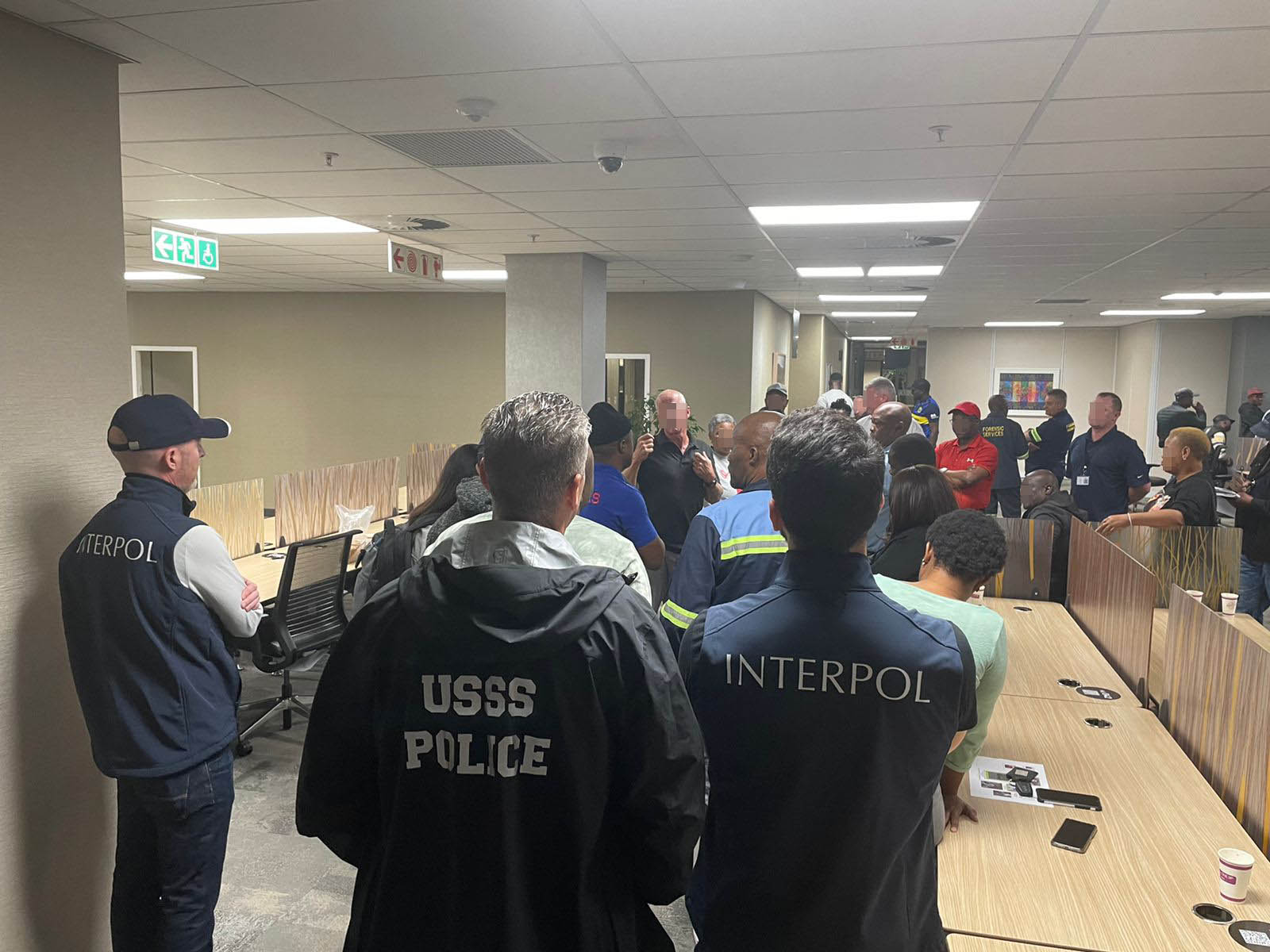Over 70 alleged scammers connected to the Black Axe Cult have been apprehended by INTERPOL
Following a coordinated operation, agents of the International Criminal Police Organization captured over 70 suspected cyber fraudsters, confirming the global presence of Nigeria’s Black Axe and related organised criminal groups, according to INTERPOL.
The joint law enforcement effort, known as Operation Jackal, mobilised 14 nations across four continents in a targeted strike against Black Axe and related West-African criminal organisations, according to INTERPOL’s most recent statement regarding the recent crackdown on financial crime rings in West Africa.
The statement states that Operation Jackal is the first time INTERPOL has coordinated a global operation especially against Black Axe, which is quickly growing to be a significant security issue globally.
A global police investigation run by INTERPOL is hidden behind the headlines that surfaced earlier this month about the arrest of two alleged online scammers in South Africa.
According to evidence examined by INTERPOL’s Financial Crime and Anti-Corruption Centre (IFCACC) and national law enforcement, Black Axe and similar organisations are accountable for the majority of financial fraud that is allowed by cyberspace as well as many other significant crimes.
The two suspects detained were only wanted in South Africa for online frauds that netted victims USD 1.8 million.
The enormous amount of assets recovered, which included 12,000 SIM cards, has given law enforcement new investigation leads.
Organized crime’s lifeblood
During one coordinated ‘action week’ (September 26-30), police around the world launched enforcement operations against individuals associated with the Black Axe group, arresting suspected criminal operators or money mules, raiding and closing down premises, and seizing assets related to ongoing cases.
Two INTERPOL operational support teams were also deployed to South Africa and Ireland, respectively, to assist international law enforcement teams on the ground in their coordination. Within the scope of the operation, the Carabinieri arrested three people in Campobasso, Italy.
“Fraud is transnational, there are no borders” said Detective Superintendent Michael Cryan of Ireland’s Garda National Economic Crime Bureau, which participated in Operation Jackal.
In total, the operation produced:
75 arrests, 49 property searches, 7 INTERPOL Purple Notices revealing criminal tactics, and 6 INTERPOL Red Notices issued for globally wanted fugitives
“We have seen how groups like Black Axe will channel money earned from internet financial crimes into other crime areas, such as drugs and human trafficking.” “These organisations deserve a worldwide reaction,” stated Stephen Kavanagh, INTERPOL’s Executive Director of Police Services.
Lavish lifestyles
The massive amount of assets recovered, which included 12,000 SIM cards, gave law enforcement new investigative leads, produced 13 analytical reports, and helped them find more than 70 additional individuals.
At the locations of their arrest, several suspects’ opulent lifestyles and greed—which they reportedly paid for by robbing people of their savings and engaging in other illegal activities were on full display.
Several high-end items were taken, including a house, three automobiles, and tens of thousands of dollars in cash.
The operation also saw the successful use of INTERPOL’s brand-new, worldwide stop-payment system, the Anti-Money Laundering Rapid Response Protocol (ARRP), which is presently in its pilot phase. The ARRP is a tool used by member nations of INTERPOL’s Global Financial Crime Task Force to promptly intercept illicit proceeds of crime.
“The ARRP is a game-changer in the fight against global financial crime, where speed and international cooperation are crucial to intercepting illicit funds before they disappear into the pockets of money mules abroad,” said Rory Corcoran, Director of IFCACC. “INTERPOL’s Global Financial Crime Task Force has shown remarkable effectiveness in disrupting illicit financial flows, bringing together cyber and finance experts across sectors to track and cut off criminal money trails.”
Many suspects’ luxurious lifestyles and avarice were obviously on display.
Operation Jackal follows INTERPOL’s first-ever roundtable engagement session with the Money Action Task Force (FATF) in Singapore last month, where the organisations inaugurated a new cooperative programme to combat illicit financial flows.
According to the United Nations, up to USD 2 trillion in illicit monies being laundered through the global financial system each year, with fewer than 1% of these funds caught and recovered.
“Fraud is transnational, there are no borders,” said Detective Superintendent Michael Cryan of Ireland’s Garda National Economic Crime Bureau, which participated in Operation Jackal.
“This is a great example of what can be achieved when international police forces cooperate by sharing intelligence, information and evidence. By working together with support from INTERPOL, the activities of these criminal gangs can be greatly disrupted, making it safer online for everyone.”
In a targeted strike against Black Axe and linked West African organised crime groups, Operation Jackal deployed 14 countries across four continents.
Operation Jackal was carried out under the auspices of Project CEFIN, which is supported by the Republic of Korea and aims to combat cyber-enabled financial crimes.
Argentina, Australia, Côte d’Ivoire, France, Germany, Ireland, Italy, Malaysia, Nigeria, Spain, South Africa, the United Arab Emirates, the United Kingdom, and the United States are among the countries taking part in Operation Jackal.
During the operation, 49 property searches were conducted around the world.













